Origin: (Robert Langdon Book 5) Read online
Page 30
“Stay down!” Langdon shouted, scrambling to Ambra and crouching protectively over her body. He looked up at the towering, helmeted storm-trooper figures that dotted the rooftop’s perimeter like silent guardians.
There was a deafening roar overhead, and buffeting winds whipped around them as the helicopter dropped down and hovered over the enormous shaft beside them, cutting off the police’s line of sight.
“¡Dejen de disparar!” boomed an amplified voice from the chopper. “¡Enfunden las armas!” Stop shooting! Holster your weapons!
Directly in front of Langdon and Ambra, Agent Díaz was crouched in the open bay door with one foot balanced on the skid and one hand outstretched toward them.
“Get in!” he shouted.
Langdon felt Ambra recoil beneath him.
“NOW!” Díaz screamed over the deafening rotors.
The agent pointed to the light well’s safety railing, urging them to climb onto it, grab his hand, and make the short leap over the abyss into the hovering aircraft.
Langdon hesitated an instant too long.
Díaz grabbed the bullhorn from Fonseca and aimed it directly at Langdon’s face. “PROFESSOR, GET IN THE HELICOPTER NOW!” The agent’s voice boomed like thunder. “THE LOCAL POLICE HAVE ORDERS TO SHOOT YOU! WE KNOW YOU DID NOT KIDNAP MS. VIDAL! I NEED YOU BOTH ON BOARD IMMEDIATELY—BEFORE SOMEONE GETS KILLED!”
CHAPTER 61
IN THE HOWLING wind, Ambra felt Langdon’s arms lifting her up and guiding her toward Agent Díaz’s outstretched hand in the hovering chopper.
She was too dazed to protest.
“She’s bleeding!” Langdon shouted as he clambered into the aircraft after her.
Suddenly the helicopter was lifting skyward, away from the undulating rooftop, leaving behind a small army of confused policemen, all staring upward.
Fonseca heaved the fuselage door shut and then moved up front toward the pilot. Díaz slid in beside Ambra to examine her arm.
“It’s only a scrape,” she said blankly.
“I’ll find a first-aid kit.” Díaz headed to the rear of the cabin.
Langdon was seated opposite Ambra, facing backward. Now that the two of them were suddenly alone, he caught her eye and gave her a relieved smile. “I’m so glad you’re okay.”
Ambra replied with a weak nod, but before she could thank him, Langdon was leaning forward in his seat, whispering to her in an excited tone.
“I think I found our mysterious poet,” he exclaimed, his eyes filled with hope. “William Blake. Not only is there a copy of Blake’s complete works in Edmond’s library … but many of Blake’s poems are prophecies!” Langdon held out his hand. “Let me have Edmond’s phone—I’ll ask Winston to search Blake’s work for any forty-seven-letter lines of poetry!”
Ambra looked at Langdon’s waiting palm and felt overcome with guilt. She reached out and took his hand in hers. “Robert,” she said with a remorseful sigh, “Edmond’s phone is gone. It fell off the edge of the building.”
Langdon stared back at her, and Ambra saw the blood drain from his face. I’m so sorry, Robert. She could see him struggling to process the news and figure out where the loss of Winston now left them.
In the cockpit, Fonseca was yelling into his phone. “Confirmed! We have both of them safely aboard. Prepare the transport plane for Madrid. I will contact the palace and alert—”
“Don’t bother!” Ambra shouted to the agent. “I am not going to the palace!”
Fonseca covered his phone, turned in his seat, and looked back at her. “You most certainly are! My orders tonight were to keep you safe. You should never have left my custody. You’re lucky I was able to get here to rescue you.”
“Rescue?!” Ambra demanded. “If that was a rescue, it was only necessary because the palace told ridiculous lies about Professor Langdon kidnappingme—which you know is not true! Is Prince Julián really so desperate that he’s willing to risk the life of an innocent man? Not to mention my life?”
Fonseca stared her down and turned back around in his seat.
Just then, Díaz returned with the first-aid kit.
“Ms. Vidal,” he said, taking a seat beside her. “Please understand that our chain of command has been disrupted tonight due to the arrest of Commander Garza. Nonetheless, I want you to know that Prince Julián had nothing to do with the media statement that came out of the palace. In fact, we cannot even confirm that the prince knows what’s happening right now. We have been unable to reach him for over an hour.”
What? Ambra stared at him. “Where is he?”
“His current whereabouts are unknown,” Díaz said, “but his communication with us earlier this evening was crystal clear. The prince wants you safe.”
“If that’s true,” Langdon declared, abruptly returning from his thoughts, “then taking Ms. Vidal to the palace is a deadly mistake.”
Fonseca spun around. “What did you say?!”
“I don’t know who is giving you orders now, sir,” Langdon said, “but if the prince truly wants to keep his fiancée safe, then I suggest you listen to me very carefully.” He paused, his tone intensifying. “Edmond Kirsch was murdered to keep his discovery from going public. And whoever silenced him will stop at nothing to make sure that job is finished.”
“It’s finished already,” Fonseca scoffed. “Edmond is dead.”
“But his discovery is not,” Langdon replied. “Edmond’s presentation is very much alive and can still be released to the world.”
“Which is why you came to his apartment,” Díaz ventured. “Because you believe you can launch it.”
“Precisely,” Langdon replied. “And that has made us targets. I don’t know who manufactured the media statement claiming Ambra was kidnapped, but it was clearly someone desperate to stop us. So if you are part of that group—the people trying to bury Edmond’s discovery forever—then you should simply toss Ms. Vidal and myself out of this helicopter right now while you still can.”
Ambra stared at Langdon, wondering if he’d lost his mind.
“However,” Langdon continued, “if your sworn duty as a Guardia Real agent is to protect the royal family, including the future queen of Spain, then you need to realize there is no more dangerous place for Ms. Vidal right now than a palace that just issued a public statement that almost got her killed.” Langdon reached into his pocket and extracted an elegantly embossed linen note card. “I suggest you take her to the address at the bottom of this card.”
Fonseca took the card and studied it, his brow furrowing. “That’s ridiculous.”
“There is a security fence around the entire property,” Langdon said. “Your pilot can touch down, drop the four of us off, and then fly away before anyone realizes we’re even there. I know the person in charge. We can hide there, off the grid, until we sort this all out. You can accompany us.”
“I’d feel safer in a military hangar at the airport.”
“Do you really want to trust a military team that is probably taking orders from the same people who just nearly got Ms. Vidal killed?”
Fonseca’s stony expression never wavered.
Ambra’s thoughts were racing wildly now, and she wondered what was written on the card. Where does Langdon want to go? His sudden intensity seemed to imply there was more at stake than simply keeping her safe. She heard a renewed optimism in his voice and sensed he had not yet given up hope that they could somehow still launch Edmond’s presentation.
Langdon retrieved the linen card from Fonseca and handed it to Ambra. “I found this in Edmond’s library.”
Ambra studied the card, immediately recognizing what it was.
Known as “loan logs” or “title cards,” these elegantly embossed placeholders were given by museum curators to donors in exchange for a piece of artwork on temporary loan. Traditionally, two identical cards were printed—one placed on display in the museum to thank the donor, and one held by the donor as collateral for the piece he had loaned.
&nbs
p; Edmond loaned out his book of Blake’s poetry?
According to the card, Edmond’s book had traveled no more than a few kilometers away from his Barcelona apartment.
THE COMPLETE WORKS
OF WILLIAM BLAKE
From the private collection of
EDMOND KIRSCH
On loan to
LA BASÍLICA DE LA
SAGRADA FAMÍLIA
Carrer de Mallorca, 401
08013 Barcelona, Spain
“I don’t understand,” Ambra said. “Why would an outspoken atheist lend a book to a church?”
“Not just any church,” Langdon countered. “Gaudí’s most enigmatic architectural masterpiece …” He pointed out the window, into the distance behind them. “And soon to be the tallest church in Europe.”
Ambra turned her head, peering back across the city to the north. In the distance—surrounded by cranes, scaffolding, and construction lights—the unfinished towers of Sagrada Família shone brightly, a cluster of perforated spires that resembled giant sea sponges climbing off the ocean floor toward the light.
For more than a century, Gaudí’s controversial Basílica de la Sagrada Família had been under construction, relying solely on private donations from the faithful. Criticized by traditionalists for its eerie organic shape and use of “biomimetic design,” the church was hailed by modernists for its structural fluidity and use of “hyperboloid” forms to reflect the natural world.
“I’ll admit it’s unusual,” Ambra said, turning back to Langdon, “but it’s still a Catholic church. And you know Edmond.”
I do know Edmond, Langdon thought. Enough to know he believes Sagrada Família hides a secret purpose and symbolism that go far beyond Christianity.
Since the bizarre church’s groundbreaking in 1882, conspiracy theories had swirled about its mysteriously encoded doors, cosmically inspired helicoid columns, symbol-laden facades, magic-square mathematical carvings, and ghostly “skeletal” construction that clearly resembled twisting bones and connective tissue.
Langdon was aware of the theories, of course, and yet never gave them much credence. A few years back, however, Langdon was surprised when Edmond confessed that he was one of a growing number of Gaudí fans who quietly believed that Sagrada Família was secretly conceived as something other than a Christian church, perhaps even as a mystical shrine to science and nature.
Langdon found the notion highly unlikely, and he reminded Edmond that Gaudí was a devout Catholic whom the Vatican had held in such high esteem that they christened him “God’s architect,” and even considered him for beatification. Sagrada Família’s unusual design, Langdon assured Kirsch, was nothing more than an example of Gaudí’s unique modernist approach to Christian symbolism.
Edmond’s reply was a coy smile, as if he were secretly holding some mysterious piece of the puzzle that he was not ready to share.
Another Kirsch secret, Langdon now thought. Like his hidden battle with cancer.
“Even if Edmond did loan his book to Sagrada Família,” Ambra continued, “and even if we find it, we will never be able to locate the correct line by reading it page by page. And I really doubt Edmond used a highlighter on a priceless manuscript.”
“Ambra?” Langdon replied with a calm smile. “Look at the back of the card.”
She glanced down at the card, flipped it over, and read the text on the back.
Then, with a look of disbelief, Ambra read it again.
When her eyes snapped back up to Langdon’s, they were filled with hope.
“As I was saying,” Langdon said with a smile, “I think we should go there.”
Ambra’s excited expression faded as quickly as it came. “There is still a problem. Even if we find his password—”
“I know—we lost Edmond’s phone, meaning we have no way to access Winston and communicate with him.”
“Exactly.”
“I believe I can solve that problem.”
Ambra eyed him skeptically. “I’m sorry?”
“All we need is to locate Winston himself—the actual computer that Edmond built. If we no longer have access to Winston remotely, we’ll just have to take the password to Winston in person.”
Ambra stared at him as if he were mad.
Langdon continued. “You told me Edmond built Winston in a secret facility.”
“Yes, but that facility could be anywhere in the world!”
“It’s not. It’s here in Barcelona. It has to be. Barcelona is the city where Edmond lived and worked. And building this synthetic intelligence machine was one of his most recent projects, so it only makes sense that Edmond would have built Winston here.”
“Robert, even if you’re right, you’re looking for a needle in a haystack. Barcelona is an enormous city. It would be impossible—”
“I can find Winston,” Langdon said. “I’m sure of it.” He smiled and motioned to the sprawl of city lights beneath them. “This will sound crazy, but seeing this aerial view of Barcelona just now helped me realize something …”
His voice trailed off as he looked out the window.
“Would you care to elaborate?” Ambra asked expectantly.
“I should have seen it earlier,” he said. “There’s something about Winston—an intriguing puzzle—that has been bothering me all night. I think I finally figured it out.”
Langdon shot a cautious glance at the Guardia agents and then lowered his voice, leaning toward Ambra. “Will you just trust me on this?” he asked quietly. “I believe I can find Winston. The problem is that finding Winston will do us no good without Edmond’s password. Right now, you and I need to focus on finding that line of poetry. Sagrada Família is our best chance of doing that.”
Ambra studied Langdon a long moment. Then, with a bewildered nod, she looked toward the front seat and called, “Agent Fonseca! Please have the pilot turn around and take us to Sagrada Família right away!”
Fonseca spun in his seat, glaring at her. “Ms. Vidal, as I told you, I have my orders—”
“Agent Fonseca,” interrupted the future queen of Spain, leaning forward and locking eyes with him. “Take us to Sagrada Família, right now, or my first order of business when we return will be to have you fired.”
CHAPTER 62
ConspiracyNet.com
BREAKING NEWS
ASSASSIN CULT CONNECTION!
Thanks to yet another tip from [email protected], we have just learned that Edmond Kirsch’s killer is a member of an ultraconservative, secretive Christian sect known as the Palmarian Church!
Luís Ávila has been recruiting online for the Palmarians for more than a year now, and his membership in this controversial religio-military organization also explains the “victor” tattoo on his palm.
This Francoist symbol is in regular use by the Palmarian Church, which, according to Spain’s national newspaper, El Pais, has its own “pope” and has canonized several ruthless leaders—including Francisco Franco and Adolf Hitler—as saints!
Don’t believe us? Look it up.
It all began with a mystical vision.
In 1975, an insurance broker named Clemente Domínguez y Gómez claimed to have had a vision in which he was crowned pope by Jesus Christ Himself. Clemente took the papal name Gregory XVII, breaking from the Vatican and appointing his own cardinals. Although rejected by Rome, this new antipope amassed thousands of followers and vast wealth enabling him to construct a fortresslike church, expand his ministry internationally, and consecrate hundreds of Palmarian bishops worldwide.
The schismatic Palmarian Church still functions today out of its world headquarters—a secure, walled compound called the Mount of Christ the King in El Palmar de Troya, Spain. The Palmarians are not recognized by the Vatican in Rome, and yet continue to attract an ultraconservative Catholic following.
More news on this sect soon, as well as an update on Bishop Antonio Valdespino, who also seems to be implicated in tonight’s conspiracy.
CHAPTER 6
3
OKAY, I’M IMPRESSED, Langdon thought.
With a few strong words, Ambra had just forced the crew of the EC145 helicopter to make a wide-banking turn and redirect toward the Basílica of the Sagrada Família.
As the aircraft leveled out and began skimming back across the city, Ambra turned to Agent Díaz and demanded the use of his cell phone, which the Guardia agent reluctantly handed over. Ambra promptly launched his browser and began scanning news headlines.
“Damn,” she whispered, shaking her head with frustration. “I tried to tell the media you did not kidnap me. Nobody could hear me.”
“Maybe they need more time to post?” Langdon offered. This happened less than ten minutes ago.
“They’ve had enough time,” she replied. “I’m seeing video clips of our helicopter speeding away from Casa Milà.”
Already? Langdon sometimes felt that the world had begun to spin too quickly on its axis. He could still recall when “breaking news” was printed on paper and delivered to his doorstep the following morning.
“By the way,” Ambra said with a trace of humor, “it appears you and I are one of the world’s top-trending news stories.”
“I knew I shouldn’t have kidnapped you,” he replied wryly.
“Not funny. At least we’re not the number one story.” She handed him the phone. “Have a look at this.”
Langdon eyed the screen and saw the Yahoo! homepage with its top ten “Trending Now” stories. He looked to the top at the most popular story:
1 “Where Do We Come From?” / Edmond Kirsch
Clearly, Edmond’s presentation had inspired people around the globe to research and discuss the topic. Edmond would be so pleased, Langdon thought, but when he clicked the link and saw the first ten headlines, he realized he was wrong. The top ten theories for “where do we come from” were all stories about Creationism and extraterrestrials.

 Angels & Demons
Angels & Demons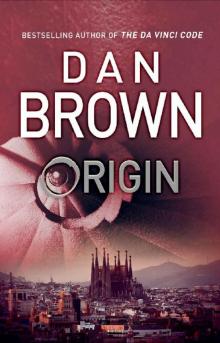 Origin
Origin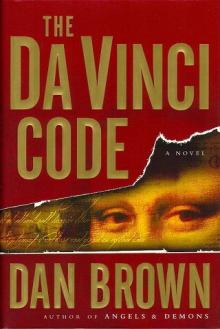 The Da Vinci Code
The Da Vinci Code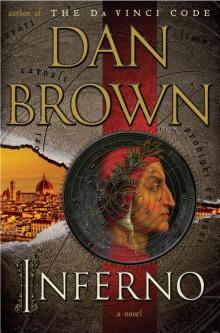 Inferno
Inferno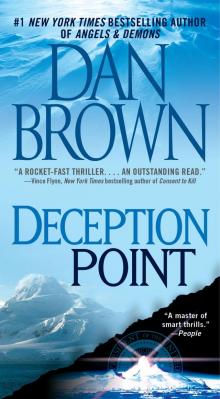 Deception Point
Deception Point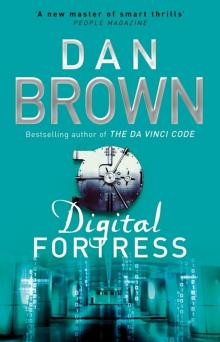 Digital Fortress
Digital Fortress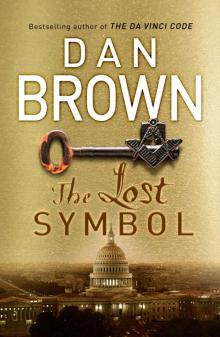 The Lost Symbol
The Lost Symbol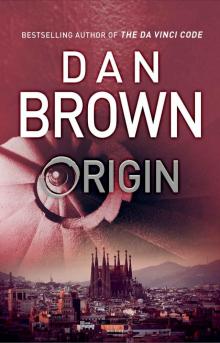 Origin: (Robert Langdon Book 5)
Origin: (Robert Langdon Book 5)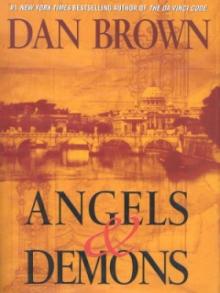 Angles & Demons
Angles & Demons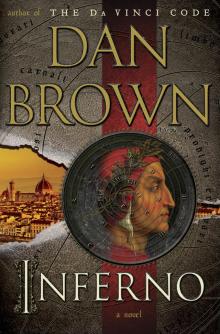 Inferno: A Novel
Inferno: A Novel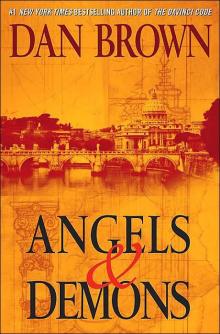 Angels & Demons rl-1
Angels & Demons rl-1 The Great Expectations School
The Great Expectations School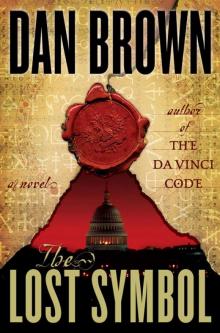 The Lost Symbol rl-3
The Lost Symbol rl-3 Angels and Demons
Angels and Demons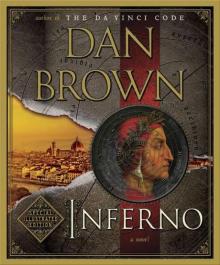 Inferno: Special Illustrated Edition: Featuring Robert Langdon
Inferno: Special Illustrated Edition: Featuring Robert Langdon